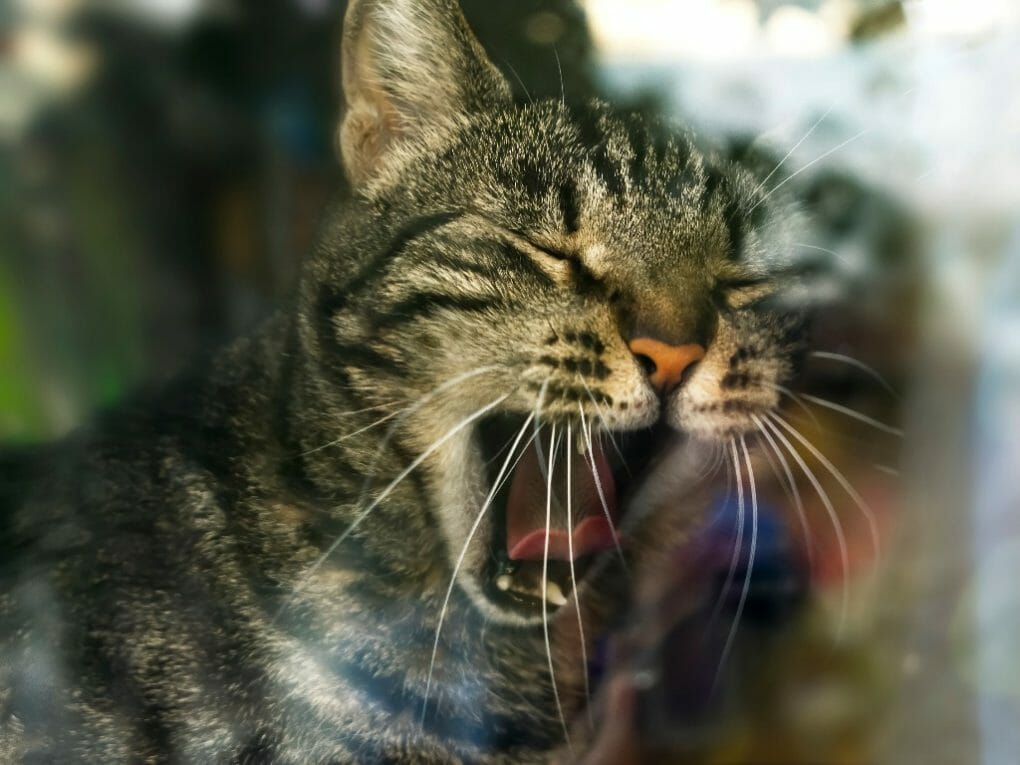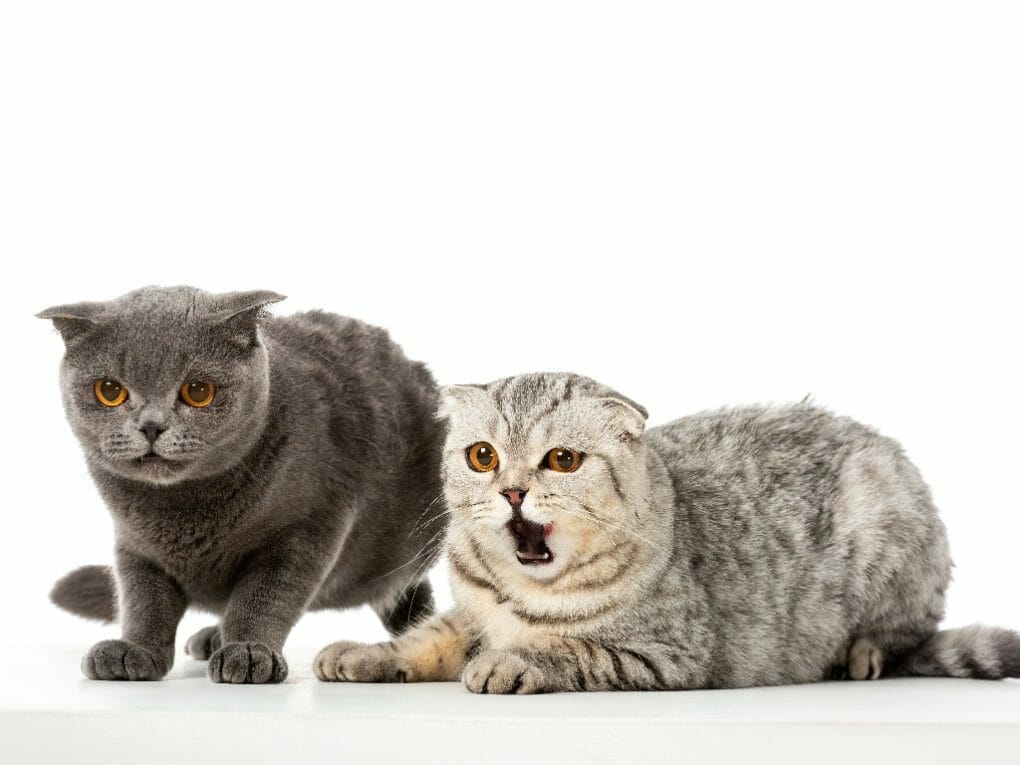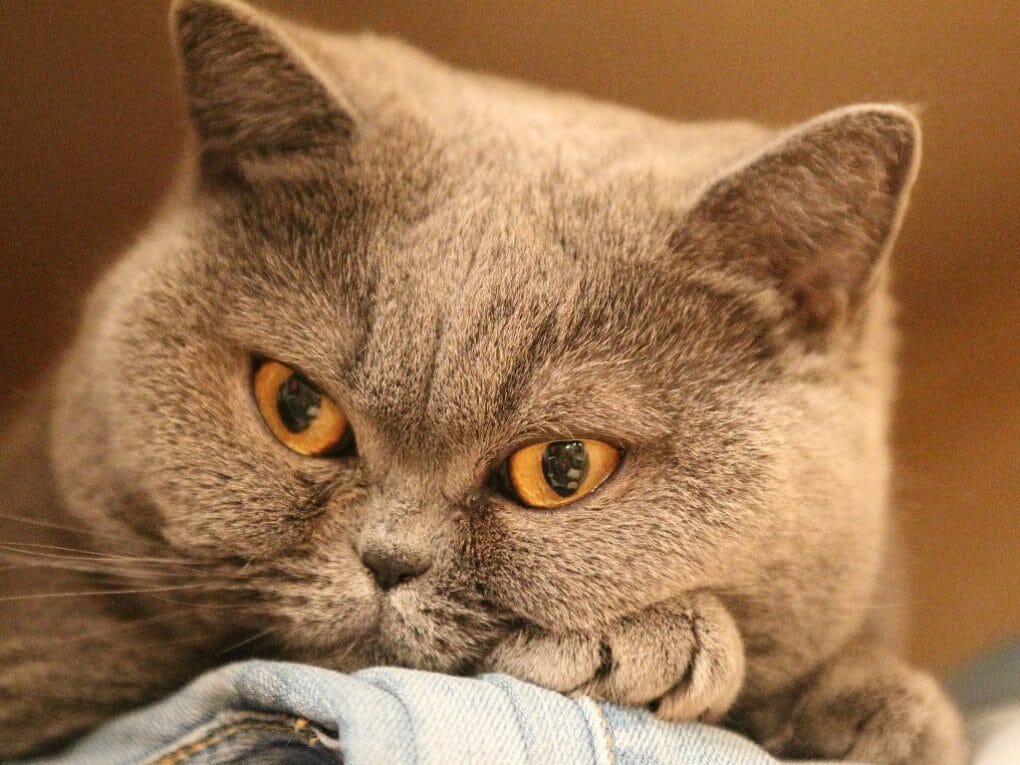Cat Yawning a Lot: Reasons Why Cats Seem to Always Yawn


Cats yawn a lot; this behavior is mainly because cats need to yawn to breathe, but it can also signify boredom or stress. In addition, yawning may also be a way for cats to communicate with their owners. So if you’re concerned about your cat yawning a lot, talk to your veterinarian about the best way to monitor its health.
Knowing why your cat yawns and how often they yawn can help you better understand their behavior. However, it is essential to note that cats are individuals and will yawn in various ways. Some yawn often and seem to take great pleasure in it, while others only occasionally. Additionally, some cats yawn while they’re sitting down and others while they’re lying down.
Table of Contents
Why Cats Yawn Too Much
There’s no doubt that cats yawn a lot. Yawning is one of the most common signs that a cat is tired. When cats are tired, they tend to yawn more frequently than usual. Yawning is also a way for cats to take in oxygen and restore their energy levels.
Exhaustion and Sleepiness
As cats are well-known for their love of sleep, it is no wonder that a lack of sleep can lead to various health problems. A lack of sleep also results in fatigue and even depression; all these symptoms cause excessive yawning. Animals that are chronically tired often yawn because it’s an effective way to conserve energy.
Lack of Oxygen
When cats eat, the muscles in their jaw and neck contract, pushing air out of their lungs. Yawning is a way for cats to get enough oxygen and relieve stress – they don’t sleep through the process!
When your cat yawns, it opens its mouth wide] and inhales deeply. Afterward, it exhales slowly while making an ‘M’ with its lips.
Boredom


There’s no doubt that cats are some of the most curious and feline creatures on earth. As such, they can get bored quite quickly – so it’s essential to provide them with plenty of toys, playtime, and environmental enrichment to keep them entertained.
Yawning is a way for cats to release energy and relieve boredom. If your cat yawns excessively or has other indications that it might be feeling restless, there might be something wrong that needs to be looked into by a veterinarian.
Cooling Its Body
Yawning is an expected behavior among cats. Cats yawn more often when bored or stressed to relieve these feelings. Cats naturally pant to cool down their body temperature.
If your cat yawns a lot, it may be time for them to see a vet for check-ups or treatment. Yawning is also a way of exchanging air and getting rid of excess heat from the body.
Mouth Pain
If you notice your cat yawning more than usual and experiencing discomfort when they do so, it might be due to mouth pain. Mouth pain is a common issue caused by various factors, including tiredness or stress.
Yawning is a way for cats to relieve stress and tension from the mouth. When cats yawn, they open their mouths wide and suck in air through their nose – this stretches the palate and eases pain in the back of the throat.
They usually do this several times within short periods, which helps them get relief from any discomfort they’re feeling. For example, when you see your cat yawn frequently, ensure that they get enough rest – it could be due to mouth pain.
Serious Medical Conditions
Cats yawning excessively often due to medical conditions such as hyperthyroidism and narcolepsy can signify severe health problems. If you notice your cat yawning more than usual, it’s best to take him to the veterinarian for an examination as soon as possible; excessive yawning could indicate other issues, such as respiratory problems or heatstroke.
If your vet diagnoses hyperthyroidism, they’ll likely prescribe medication to control the condition and help curb your cat’s excessive yawning.
Medical Problems That Can Cause a Cat to Yawn More
Cats yawning a lot can be a sign of various medical problems. For example, a yawn may be a sign of fatigue or illness. If you notice your cat yawning more often than usual, it’s essential to schedule an appointment with the veterinarian for further examination and diagnosis.
Always consult a veterinarian if you notice any changes in your cat’s behavior, especially if the yawning is excessive or accompanied by other signs of illness.
Periodontitis or Oral Issues
Periodontitis is a problem that can affect the teeth and gums. In cats, this condition may lead to excessive yawning. However, treatments available can solve the root cause of the issue so your cat can resume regular activities as soon as possible.
If you are seeing an increase in your cat’s yawning, it is essential to get them checked out by a veterinarian for further examination and treatment options.
Parasites, Allergies, or Infections


If you notice that your cat is chronically yawning more, it’s essential to take them to the vet for a check-up. This could indicate a severe underlying medical condition, such as parasites, allergies, or infections.
Once you know the problem, treatments can start immediately and help reduce the amount of yawning your cat does. Keep an eye out for other changes, too – if your cat seems lethargic or has suddenly lost appetite, these may also indicate a medical issue that needs attention.
